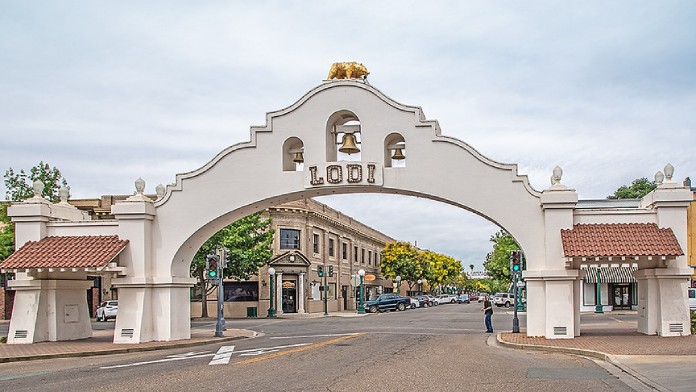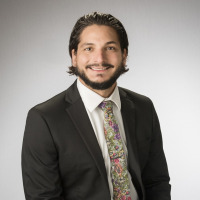Alcohol and Drug Use Statistics in Lodi, CA
Alcohol- and drug-use data compiled by the CDC, the California Department of Public Health, and San Joaquin County highlights the following local substance abuse statistics:1,3,4
In 2021, San Joaquin County’s stimulant-related fatality rate was 14% greater than California’s.
Approximately 18% of San Joaquin County residents report engaging in excessive drinking regularly.
Roughly 28% of driving deaths in San Joaquin County involve alcohol-impaired drivers.
Levels of Care for Substance Abuse
Multiple levels of care exist for alcohol and drug rehab in California. Some residents require all levels of care during their journey to recovery, while others receive only the less intensive options.
Medical Detox
Detox is the process of safely and comfortably removing drugs or alcohol from your system while in a supervised medical setting. Many people choose a medical detox program to prevent severe withdrawal symptoms. This is often the first step in the recovery process, completed before transitioning into formal inpatient addiction treatment services.
Inpatient Care
An inpatient or residential setting involves living at an accredited rehab facility 24/7 to receive treatment for addiction. A combination of evidence-based interventions are provided, including individual and group therapy, nutritional counseling, and medication administration.
Partial hospitalization programs (PHPs)
PHPs are a type of outpatient treatment in California that often involve many of the same therapies and methods of inpatient care. The difference being that you only visit the drug rehab during scheduled session times, then you can return home.
Intensive Outpatient Programs (IOPs)
A step down from PHPs, IOPs are a type of outpatient treatment in California allowing you to attend onsite sessions for several hours a day, multiple days each week, while spending the rest of your time at home, working, or fulfilling other obligations.
Standard Outpatient
As the least intensive setting, standard outpatient care is appropriate for California residents who are highly motivated and have a strong support system. It involves just one or two hours of treatment per week.
Relapse Prevention
Aftercare, or relapse prevention, provides ongoing support after a rehab program is complete. Aftercare may include 12-step groups, non-12-step groups like SMART Recovery, ongoing therapy, sober living homes, and more.
How to Pay for Substance Abuse Treatment in California
Private Insurance
Every insurance provider in the U.S. is required by law to provide at least some coverage for mental health and substance abuse treatment. In California, residents should contact their insurance provider to confirm specific coverage with their carrier, including applicable copays.
Medi-Cal
Medi-Cal is California’s Medicaid program. Funded by federal and state taxes, this program pays for medical services for children and adults who have limited income. To qualify for Medi-Cal, California residents must meet income requirements and be one of the following: pregnant, responsible for a child under 21 years old, blind, disabled or a disabled family member, or 65 years or older.
California Medicare
California Medicare is a government program providing coverage to residents who are over the age of 65 or who have end-stage renal disease. California residents can use Medicare to cover the cost of rehab and other addiction treatment services; however, not all rehabs accept Medicare insurance.
Sliding Scale Payment Options
Sliding scale payment plans only charge California residents what they can afford, based on their income. To qualify, residents typically need to provide proof of income and assets.
TRICARE in California
California TRICARE (West Region) is a government program that provides health insurance for military personnel, veterans, and their dependents. TRICARE coverage includes addiction treatment services, such as rehab and medication-assisted treatment (MAT).
IHS-Funded Drug Rehabs
Drug rehab programs funded by the Indian Health Service provide free addiction treatment to California Natives and Indigenous peoples in the U.S.
Traveling to Lodi, CA: How to Get There, Where to Stay, and Local Attractions

If you can’t access the treatment you need where you currently live, you may be interested in traveling to an alcohol or drug rehab in Lodi. However, you should familiarize yourself with the area before you make the trip. The same holds true if you’re planning to visit a loved one as they work through recovery in one of the city’s treatment centers.
Here’s what you should know about Lodi:5,6,7,8
- You can fly into Stockton Metropolitan Airport, which is a 20-minute drive south of the city. Or, you can fly into Sacramento International Airport, which is about 45 minutes north of Lodi.
- You can easily reach several major transit routes from Lodi. State Route 12 passes through the city and leads west to Interstates 5, 80, 680, and 780.
- Lodi has several two- and three-star, national-chain lodging options. You’ll also find several higher-end, non-branded establishments if you’re looking for more luxurious or home-like accommodations.
- If you need public transportation, Lodi’s GrapeLine bus is highly affordable and has five fixed routes throughout the city that operate Monday through Saturday. On Sundays, dial-a-ride service is available.
- Riding-sharing services, including Uber, Lyft, and taxi services, are available in Lodi.
- Lodi’s Hutchins Street Square is a conference, performing arts, and community center that offers a plethora of opportunities for entertainment.
- Lodi’s historic downtown is packed with unique eateries, local shops, and art galleries.
- Lodi Lake, the Mokelumne River, and Lodi Wine Country are all great places to enjoy some outdoor fun.
- Popular attractions include the Hill House Museum, the San Joaquin County Historical Museum, the World of Wonders Science Museum, the Micke Grove Zoo, and the Lodi Serpentarium.
California Alcohol and Drug Laws
California law includes the following policies related to substance abuse:1,2,3,4,5
California Employee Protections for Drug or Alcohol Rehab: California’s labor code requires employers with 25 or more employees to provide accommodation to staff who voluntarily choose to attend alcohol or drug rehab. This may include unpaid time off or use of sick or vacation time. Employees who wish to request time off for addiction treatment may be able to request it under the Family and Medical Leave Act or the California Family Rights Act.
Substance Abuse and Crime Prevention Act: This act provides treatment opportunities for individuals who are convicted of non-violent crimes. Eligible offenders may serve their time in drug treatment rather than in prison.
California Government Prevention and Care Services: Senate Bill 110 expanded these services to include contingency management (an incentivized treatment program) as a benefit covered under Medi-Cal. Patients who demonstrate substance-free behavior, such as drug-free urine tests, are rewarded with vouchers or gift cards.
California Ethical Treatment for Persons with Substance Use Disorder Act: This bill protects residents undergoing addiction treatment by requiring alcohol and drug rehabs in California to adopt a client bill of rights that seeks to ensure every client is are treated with dignity, honesty, and respect.
California’s Good Samaritan Law: This law encourages California residents to call 9-1-1 if an overdose is suspected. It protects individuals who seek emergency medical care for overdose from legal repercussions for possession of a controlled substance/drug paraphernalia or providing alcohol to minors.
Resources
- Centers for Disease Control and Prevention, National Center for Health Statistics. CDC Wonder Online Database. (2021). Underlying Cause of Death, 1999-2020 Results, Deaths occurring through 2020.
- Substance Abuse and Mental Health Services Administration. (n.d.). FindTreatment.gov.
- California Department of Public Health. (n.d.). California Overdose Surveillance Dashboard, San Joaquin County Dashboard.
- San Joaquin County Public Health Services. (2022, May). San Joaquin County 2022 Community Health Needs Assessment.
- City of Lodi, California. (n.d.). Air.
- City of Lodi, California. (n.d.). Transit.
- City of Lodi, California. (2022, October 20). Lodi Grapeline Weekday Bus Routes.
- City of Lodi, California. (n.d.). Hutchins Street Square.



